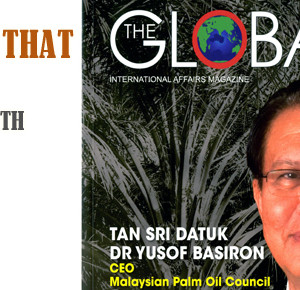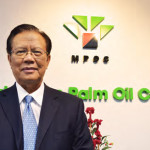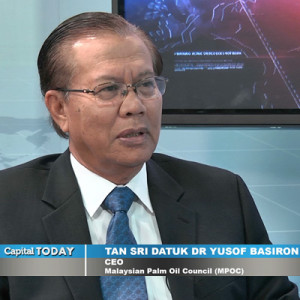Interview with Carl Bek-Nielsen
Dato ‘Carl Bek-Nielsen is the co-chairman of the Roundtable on Sustainable Palm Oil (RSPO), and the Vice-President and Executive Director of United Plantations, a major producer of palm oil in Malaysia.
Carl Bek-Nielsen talked to Belga for the General Assembly RSPO, taking place this week in Bangkok, Thailand.
Palm oil is the only vegetable oil that is being investigated as critical and has now obtained several certificates. Nevertheless, there remains a campaign waged against palm oil. What is your opinion about the campaign against palm oil in Europe and what do you think the future will bring?
No other vegetable oil, and even no other agricultural product, is the subject of such scrutiny and must comply with such strict sustainability standards as palm oil . None. So it is just.
The campaign against palm oil is a combination of many things that have been mentioned earlier. Besides the polarized debate, the often one-sided views of the soft media of course also help. It divides the people, stirs them up and it arouses anger. Moreover, there is also actively lobbied to keep palm oil outside certain markets such as the EU, which has a strong agricultural lobby. Look at the EU budget, approximately 40% of the total EU budget is earmarked for the common agricultural policy. So there are huge economic interests at stake, and it would be naive to think otherwise. In some regions, the campaign will solidify even more intense, but as people become more aware and to hear a more balanced view, the negative feelings will weaken.
The main certificate is that of the RSPO, but there have been tensions with NGOs, European companies and palm oil producers. You are a businessman and a representative of the RSPO. How come these tensions reflected in business relationships? And how to deal with it?
The RSPO is a voluntary organization with multiple administrators. I emphasize the word ‘voluntarily’. If you smoke cannot stand in the kitchen, you can always leave. Until now, people come into the kitchen to get around the table to sit and be part of this change. Manufacturers have indeed done so much effort over the last decade and a great risk taken by trying to meet the requirements of the RSPO. Unfortunately, the demand for palm oil with a certificate of RSPO disappointingly lethargic and that is the big problem. The patience of the farmers touches on it now appears that not everyone delivers comparable efforts. Nearly 20% of all palm growers in the world have fulfilled their part of the agreement by providing the RSPO certified palm oil, while consumer goods manufacturers, retailers and others their part of the obligation has not been fulfilled. About 50% of the stock of certified palm oil is not included yet. It is therefore time that the NGOs are also beginning to pay more attention to increasing demand, and not only from the stock, so that will be made proportionate efforts on both sides and credibility can be restored.
What would be your message for companies, or others, in Belgium remain negative campaigns against palm oil?
the palm oil industry has over the past twelve to fourteen years been examined very critically and often was justified. However, consumers and food producers must realize that the last ten years a lot has happened and that have evolved many growers. It is now time for companies using the label “No Palm Oil ‘, abandon their hypocrisy and evolve … and accept that palm oil certified by the RSPO, promotes positive change and supports. This movement to turn his back and to boycott palm oil, which is labeled “No Palm Oil ‘does, they take a step in the wrong direction, which could have a more harmful impact on the environment, as the vegetable oils instead of palm oil are used, six to fifteen need more land area than palm oil.
Source : www.belga.be










Leave a Reply